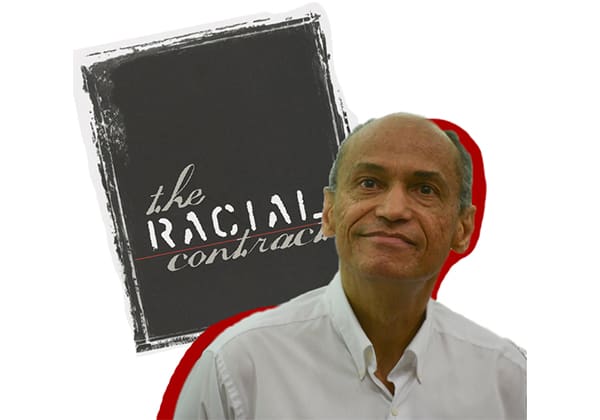On the 20th of September, in Evanston, Illinois, Dr. Charles W. Mills died of cancer.
Mills was a towering intellect within the field of political philosophy, who pioneered the conceptualisation of race as found in Western political philosophy. He will be remembered as a critic of liberalism as it is so often conceived: a racist, colonialist project of misrepresenting the world in order to commit and sustain atrocities within it. But just as important, if not more so, was his unfinished project: attempting to articulate what liberalism should have been — a black, radical liberalism.
Mills’ academic writings are unflinching. On the philosophical journey to his conclusions, he is not the patient guide who waits for you to catch your breath or check your footing, he is half a kilometre ahead of you — a head-and-shoulders silhouette reminding you that you cannot slow down, you must keep moving. He is not here to congratulate you on your presence on the journey. He will not assuage your white intellectual guilt with “one of the good ones” sentiments. His was an urgent and overdue undertaking in the 1990s (when he published his first book, The Racial Contract) and continued to personify the aspect of what he describes as “[his] historical formation as a Third World/Global South subject.”
Mills lived his philosophy before he learned it, unlike most academic philosophers of the 20th and 21st centuries. As a physics undergraduate, then natural sciences teacher in Kingston, Jamaica, he was politicised by the radical leftist politics that caught like wildfire through the Anglo-Caribbean in the 1970s. This context sowed in him the desire for a subject that provided “a big picture overview of what was really going on,” which brought him to philosophy, and to the University of Toronto for a Masters degree.
‘It’s like that great exchange in Casablanca
between Humphrey Bogart and Claude Rains:
“I came to Casablanca for the waters.”
“The waters? What waters? We’re in a desert!.”
I was misinformed.’
Possibly the defining theory of Mills’ career was his epistemology of ignorance – an inverted epistemology in which white people, having cloaked themselves in the mantle of “knower,” “thinker,” “reasoner,” systematically misperceive the world in order to justify the enactment or sustain the processes of “conquest, colonisation, and enslavement.” As a white person who has lived most of her life on stolen land, at times, I find Mills uncomfortable to read. Butin many ways, this is how he should be. He details the role of white supremacy in the history of liberal philosophy and call out every “all men are created equal” herald the slavery apologist sentiment that it holds. For Mills, there was no text too sacred, no writer too well-intended, that they could exempt themselves from the charge of this cognitive failure. Thomas Jefferson, Immanuel Kant, Plato, even John Rawls, the defining liberal theorist of the 20th century, were all painstakingly scrutinised by Mills for their blindness to the material condition of race. To be a white thinker at ease in Mills is to fall asleep at the wheel.
It was heartening to find, then, when listening to interviews and lectures in preparation for this article, that Dr Mills was a good-humoured and magnanimous speaker. His move from physics to philosophy is unfailingly remarked upon by masters of ceremony and interviewers, to which he would respond with witty self-deprecations, such as the Casablanca reference above, or a remark that “the real reason [for the move] was that in physics you have to do real experiments and they never came out the way [he] wanted so you constantly have to fudge them…the great virtue of philosophy is that you had to do thought experiments and you then have complete control of the outcome…the physics thing was a big mistake.” Having fashioned a sort of academic archnemesis out of the late John Rawls, he began his Tanner Lecture in 2020 by comparing his critique of Rawls to an infamous speech by Clint Eastwood, in which he ‘talks’ to an imaginary Barack Obama, addressing an empty chair on stage.
“John Rawls gave a lecture in this place some years ago, perhaps on occasion you might find
– is there an empty chair around?
…You might find me turning around to address him from time to time.”
Mills was clearly a naturally charismatic person. But he also knew the utility of humour. It was this commanding presence and ability to disarm his predominantly white audience at philosophy events that makes him, and his arguments, all the more memorable.





